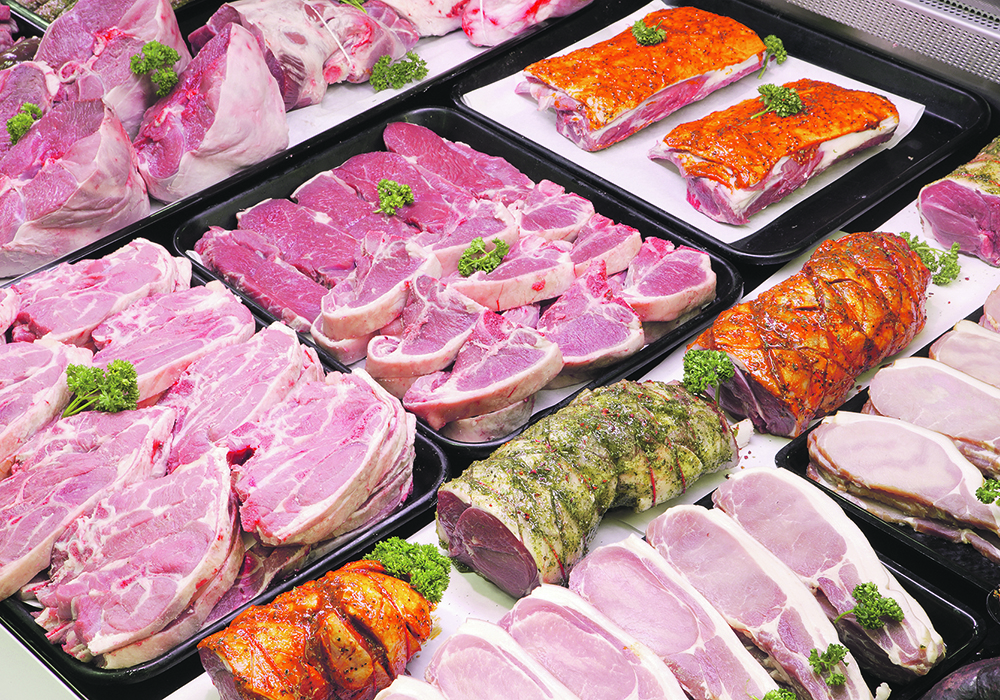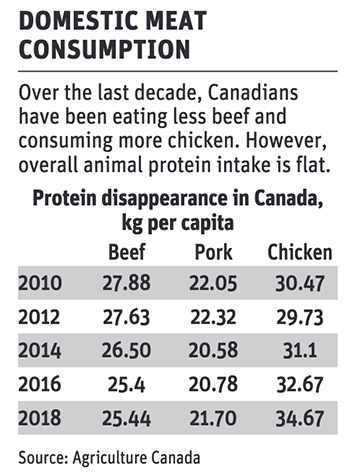Analyst predicts producers will have to respond as planet-friendly diets become next big trend among consumers
Oatly, a Swedish company that makes and sells oat milk, has a unique label on its cartons.
The label explains the climate footprint of the oat milk, or how much carbon dioxide was emitted to produce the milk and transport it to the grocery store.
In Oatly’s case, it estimates that one kilogram of oat milk (one litre) causes about 0.35 kg of CO2 emissions.
That number, 0.35, only means something if consumers can compare it to another food product. But such comparisons will soon be the norm, says an expert in the global market for food and drink.
Read Also

VIDEO: Agritechnica Day 4: Robots and more robots, Nexat loves Canada and the trouble with tariffs
Agritechnica Day 4: Robots and more robots, Nexat loves Canada and the trouble with tariffs.
“I would expect to see, in the next two years, that the market will force all food products… to have an enviro-score on the front of the pack,” said David Hughes, emeritus professor of food marketing at Imperial College London.
Hughes, who is Canadian, has studied the food industry for decades and served as an advisory board member for food companies around the globe.
“I’m saying to everybody in the food industry: look at your product and work out what your enviro-score is going to be, and will that be helpful or will that be a challenge?”
Hughes shared this message during a virtual presentation hosted by Farm and Food Care in February.
Farm and Food Care has chapters in Ontario, Saskatchewan and Prince Edward Island and a mandate of providing credible information on food and farming.
In his talk, Hughes explained that food companies will soon adopt enviro-scores because more consumers are moving toward climate-friendly diets.
Data suggests that 20 percent of global consumers are eco-actives, Hughes said, meaning they will change their purchases to buy products that are better for the environment.
A larger percentage, 40 percent, are classified as eco-dismissive. But their numbers are shrinking and eco-actives are expanding.
The shift toward planet friendly diets is gaining traction, thanks in part to studies that blame modern agriculture and livestock for the world’s environmental problems.
One such study came out in February, claiming agriculture is the main threat to wildlife and wild habitat around the globe, and avoiding meat is one of the ways to save wild animals.
Major food and restaurant companies have noticed the public’s interest in planet-friendly diets, which is why KFC now offers plant-based chicken nuggets and Starbucks is selling drinks made from oat milk.
The amount of money pouring into plant-based products is staggering, Hughes said.
“It’s a global thing. I see this everywhere…. Even the Colonel (KFC) has gone plant-based in China, as he has in America,” he said. “The biggest food companies are roaring into it.”
The shift toward planet-friendly foods is bigger than vegetarian or veganism. Many consumers will continue to eat dairy products and meat, but they want to know that the pork, milk and cheese is produced sustainably.
In February, Canada’s dairy industry attracted unwanted attention because some farmers have been feeding palm oil additives to their cows. The story generated international interest because many Canadians are frustrated with hard butter and palm oil may be the culprit.
This sort of on-farm production decision is a threat because some consumers associate palm oil with deforestation in Malaysia and Indonesia, Hughes said.
“You’ve got to understand the values of your customers…. And your values (must be) in tune with theirs,” he said. “I would think that a proportion of consumers would not be happy with that…. I would be very careful about doing that.”
The dairy industry’s competition, almond, soy and oat milk companies, could point to palm oil in cattle rations as evidence that plant-based milk is better for the planet.
Oatly, for one, has fully committed to the planet friendly diet and the marketing opportunity.
On its website, Oatly describes itself as a sustainability company that happens to make oat milk.
“Oatly exists in order to help as many people as possible make the switch from an animal-based diet to plant-based, which scientists say is one of the most effective actions an individual can take right now to save our planet.”

















